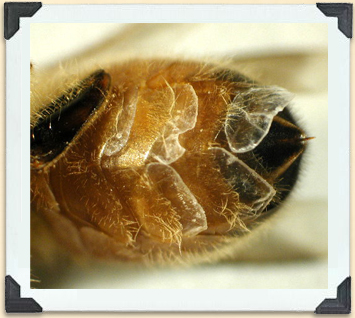Life in a Hive

Wax flakes from the bee's abdomen are used to cap comb cells.
© Zach Huang
Wax Making
At a certain age, glands on the underside of worker bees' bellies begin to produce wax flakes. They use this wax to build new cells and to cap the ones storing ripened honey. Wax making takes a lot of energy. Bees need to eat 8 kg of honey to produce just 1 kg of beeswax.





